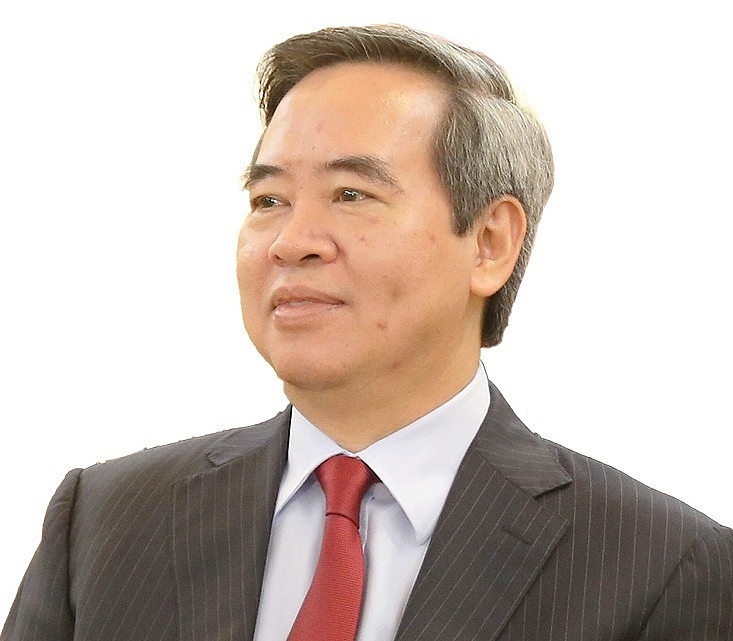 |
|
Nguyen Van Binh, Politburo member and head of the Party Central Committee’s Economic Commission
|
Nguyen Van Binh, Politburo member and head of the Party Central Committee’s Economic Commission, talked about this goal, with stress laid on the removal of private businesses’ obstructions.
After two years of implementing Resolution No.10-NQ/TW on developing the private sector into an important impetus of the economy, what specific results have been achieved?
Resolution 10 incarnates the brainpower of the whole Party and the entire people. It reflects experiences and valuable lessons learned from more than 30 years of doi moi. It also inherits the socio-economic development achievements of humankind.
In the resolution, the Party has determined that developing a healthy private sector is an imperative and frequent task during the country’s perfection of the socialist-oriented market economy. This is considered an important tool for liberalising labour force and production, and effectively mobilising, allocating, and using all resources for the country’s development.
This is the first time the Party has determined that the state economic sector, the collective economic sector, and the private economic sector are together a key pillar to develop an independent and self-reliant economy.
The views in the resolution are new ones which are strong and considered a breakthrough. They have created changes in the mindset, leading to remarkable improvements in policies for the private sector, and opening up more room for the sector to further develop. The consistent policy of the Party is to develop a multi-sectoral private sector, and all economic sectors are treated fairly under the law. Each economic sector has its own position, role, and functions.
While the Party has highlighted the removal of all obstacles and prejudice against the private sector, and the creation of all best conditions for the sector to develop healthily, it has also resolutely fought against manifestations of crony capitalism, interest groups, policy controlling, and unhealthy competition for profits.
In addition, the Party has always paid due attention to fostering Vietnamese entrepreneurs with political perception, national pride, and self-support. They are also those who have a strong attachment to national interests and the construction of socialism.
With the specific solutions featured in Resolution 10, do you think that the Vietnamese private sector has a strong foundation for further development?
There are several factors that are important to the solutions stressed by the resolution.
The first pertains to perception and mindset. We have clearly defined the private sector as an important driving force of the socialist-oriented market economy. However, we also need to take sound solutions in order to enhance the sector’s strong points for the sake of national interest.
The second is that we need to properly foster relations between the government and the market in the economy. The government plays a role in directing, constructing, and perfecting economic institutions via the use of policy tools and resources for regulating the economy, boosting production and business, protecting natural resources and the environment, and developing the country’s culture and society.
Meanwhile, the market plays a role in liberalising the labour force, and effectively mobilising, allocating, and using all resources for development. Only by efficiently solving these relations in the process of perfecting the socialist-oriented market economy can we contribute to facilitating the private sector development.
What about the solutions for creating a favourable business climate for the private sector to further develop?
If we solve the two above-said factors, we can take sound solutions. In this regard, it should be about specific issues such as creating a sound macro-economic climate, constructing a synchronous and developed socio-economic infrastructure system, and creating favourable policies and mechanisms for the private sector to develop. In principle, it is necessary to expand the ability in participating in the market of the private sector, and ensure fair and healthy competition. This means that best conditions must be created for the sector to access resources for development, especially land, capital, and labour, as well as science and technology so that they can boost innovation and apply high technology in their business and production. VIR
 As Vietnam moves closer to developing a sturdy private sector, the government is being urged to create the best conditions for the sector to do business.
As Vietnam moves closer to developing a sturdy private sector, the government is being urged to create the best conditions for the sector to do business.